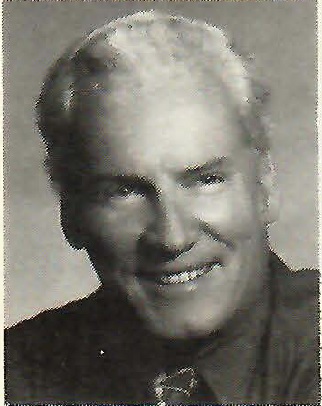THE EDITOR'S CORNER
In November of 1978, the voters in Oregon with a 78% affirmative vote passed an initiative to license and regulate denturists. Dental laboratory technicians, dealing directly with the public in Oregon, are licensed to make and place dentures, following the issuance of a certificate of health by a licensed dentist. Since there may be lessons to be learned by orthodontists from the result of this initiative, it is instructive to review some of the postmortems.
Perhaps there is something special about the commitment of the people of Oregon to populism, egalitarianism, personal freedom, the environment, and consumerism. If so, there is evidence that this is only a matter of degree. For example, on the same issue, the Colorado legislature recently approved a compromise recommendation to permit technicians to perform direct denture service to the public with a licensed dentist providing a work authorization and approval of the work as satisfactory.
After the fact, it is rather easy to see what happened in Oregon. The dentists saw the issue as one of oral health and quality of training. The public saw the issue as one of economics, consumerism, and personal freedom. The public viewed a denture as an appliance, whose availability at low cost would benefit the elderly. Since the public disagreed on the health issue, they ascribed the dentists' stance to greed and a move to maintain a monopoly on dental care. The public was receptive to the idea that denturists were specialists in dentures and had more experience than the average dentist. The voters, especially in urban areas, were favorable to the use of para-professionals.
Not only were dentists campaigning on the part of the question that the public had apparently ruled out, the dentists also seem to have misperceived the public's definition of freedom of choice. To dentists, it is freedom to choose any dentist. To the public, in Oregon at least, it was freedom to choose any deliverer of the service. This is the freedom-to-be-wrong stance. We see it in many other contexts. People may be aware of and believe the statistics on smoking, but continue to smoke. They may also militantly want to accept the risks of smoking marijuana. People may be aware of and believe the statistics with regard to seat belts and yet only 14%, of people use them. They may also militantly oppose helmet legislation for motorcyclists.
The moral is that you can't always tell people what is good for them and expect that they will accept the advice and act positively on it. This is especially true if you are your own advocate. While the dentists in Oregon hired an aggressive PR agent, it was clear that the dentists ran the show, committed a large amount of money, and had outside ADA help. In addition to not listening to the public on the issue, the dentists were inflexible and uncompromising, and produced a campaign that impressed the public unfavorably for its content, stridency, and unprofessional quality. As much as the issues themselves, the nature of the campaign seems to have polarized all the Oregon media toward favoring the initiative and castigating the dentists. While the dentists in Oregon still rank high in public esteem, they were damaged by the campaign and the media attack upon them.
The initiative battle was a sore lesson to the dentists in Oregon on the differences between a fight against a piece of legislation in the privacy of legislative halls and offices and a fight against an initiative out in the open under total public scrutiny. Aggressive tactics which may work well in private, may backfire in public.
I believe that if the dentists in Oregon could turn back the clock and relive the recent past, they would approach the recent controversy in an entirely different manner. If they were to have evaluated the conditions that existed more accurately, they might have been willing to work out an acceptable compromise, but above all they would not have conducted the campaign that they did. Rather, they would have committed their money and their time, long before it reached confrontation, to build the image of professionalism in dentistry and to educate the public about oral health and the part that dentistry plays in their lives.
Dentists must build bridges with the community. The community is not a witless giant. It has a collective wisdom. Dentists would do well to learn the lessons of Oregon and make a real effort to understand public views which may be more complicated than our own and to so conduct ourselves and our policies so that the public believes that dentists' first concern is with the quality of life of the public. Otherwise, we can continue to expect not to be consulted on matters of regulation and legislation with regard to dentistry and to be subject to unfavorable decisions such as the Oregon initiative.
Orthodontists, are you listening?


